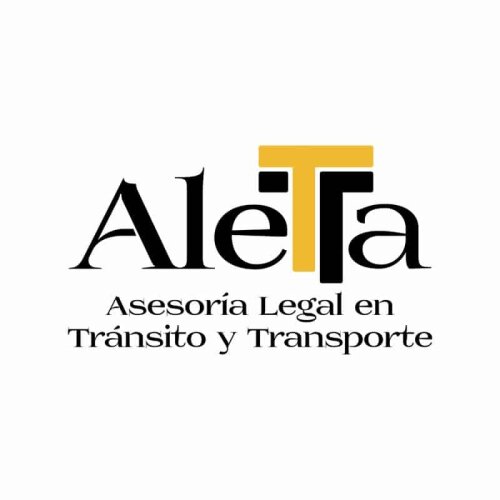Best Toxic Tort Lawyers in Colombia
Share your needs with us, get contacted by law firms.
Free. Takes 2 min.
Or refine your search by selecting a city:
List of the best lawyers in Colombia
About Toxic Tort Law in Colombia
Toxic Tort Law in Colombia refers to legal cases where individuals or groups seek compensation for injuries or damages caused by exposure to toxic substances. These cases often involve environmental contamination, workplace exposure, or consumption of toxic products.
Why You May Need a Lawyer
You may need a lawyer if you believe you have been harmed by toxic exposure and want to seek compensation. A lawyer can help you navigate the legal process, gather evidence, and represent your interests in court. They can also help you understand your rights and options for legal recourse.
Local Laws Overview
In Colombia, toxic tort cases are governed by the Civil Code and other relevant environmental laws. The burden of proof is on the plaintiff to demonstrate that their injuries were caused by exposure to toxic substances. The statute of limitations for filing a toxic tort lawsuit in Colombia is typically two years.
Frequently Asked Questions
1. What types of damages can I seek in a toxic tort case?
In a toxic tort case, you may seek compensation for medical expenses, lost wages, pain and suffering, and punitive damages.
2. How do I prove that my injuries were caused by toxic exposure?
You will need to provide medical records, expert testimony, and other evidence linking your injuries to the toxic substance. A lawyer can help you gather this evidence.
3. Can I file a toxic tort lawsuit against a company or individual?
Yes, you can file a lawsuit against a company or individual whose negligence or misconduct led to your toxic exposure.
4. What is the statute of limitations for filing a toxic tort lawsuit in Colombia?
The statute of limitations is typically two years from the date you discovered or should have discovered your injuries were caused by toxic exposure.
5. How long does it take to resolve a toxic tort case in Colombia?
Every case is different, but toxic tort cases can take several months to years to resolve, depending on the complexity of the case and the willingness of the parties to negotiate a settlement.
6. Can I still file a toxic tort lawsuit if the exposure happened years ago?
Yes, as long as you file within the statute of limitations, you can still pursue a toxic tort lawsuit even if the exposure occurred years ago.
7. Is there a cap on the amount of damages I can recover in a toxic tort case in Colombia?
There is no specific cap on damages in toxic tort cases in Colombia, but the amount you can recover will depend on the facts of your case and the evidence presented.
8. Do I need to prove intent to harm in a toxic tort case?
No, you do not need to prove that the defendant intended to harm you in a toxic tort case. Negligence or recklessness in handling toxic substances can be sufficient to hold them liable.
9. Can a class action lawsuit be filed for toxic tort cases in Colombia?
Yes, class action lawsuits can be filed for toxic tort cases in Colombia if multiple individuals have been harmed by the same toxic exposure.
10. How can a lawyer help me with my toxic tort case?
A lawyer can help you understand your legal options, gather evidence, negotiate with the opposing party, and represent your interests in court to seek fair compensation for your injuries.
Additional Resources
If you need legal assistance with a toxic tort case in Colombia, you can contact the Colombian Bar Association or environmental law organizations such as the Environmental Legal Institute of Colombia for guidance and support.
Next Steps
If you believe you have been harmed by toxic exposure and need legal assistance, it's important to consult with a qualified lawyer who has experience in toxic tort cases. They can assess your situation, explain your legal rights, and help you pursue a claim for compensation.
Lawzana helps you find the best lawyers and law firms in Colombia through a curated and pre-screened list of qualified legal professionals. Our platform offers rankings and detailed profiles of attorneys and law firms, allowing you to compare based on practice areas, including Toxic Tort, experience, and client feedback.
Each profile includes a description of the firm's areas of practice, client reviews, team members and partners, year of establishment, spoken languages, office locations, contact information, social media presence, and any published articles or resources. Most firms on our platform speak English and are experienced in both local and international legal matters.
Get a quote from top-rated law firms in Colombia — quickly, securely, and without unnecessary hassle.
Disclaimer:
The information provided on this page is for general informational purposes only and does not constitute legal advice. While we strive to ensure the accuracy and relevance of the content, legal information may change over time, and interpretations of the law can vary. You should always consult with a qualified legal professional for advice specific to your situation.
We disclaim all liability for actions taken or not taken based on the content of this page. If you believe any information is incorrect or outdated, please contact us, and we will review and update it where appropriate.
Browse toxic tort law firms by city in Colombia
Refine your search by selecting a city.















